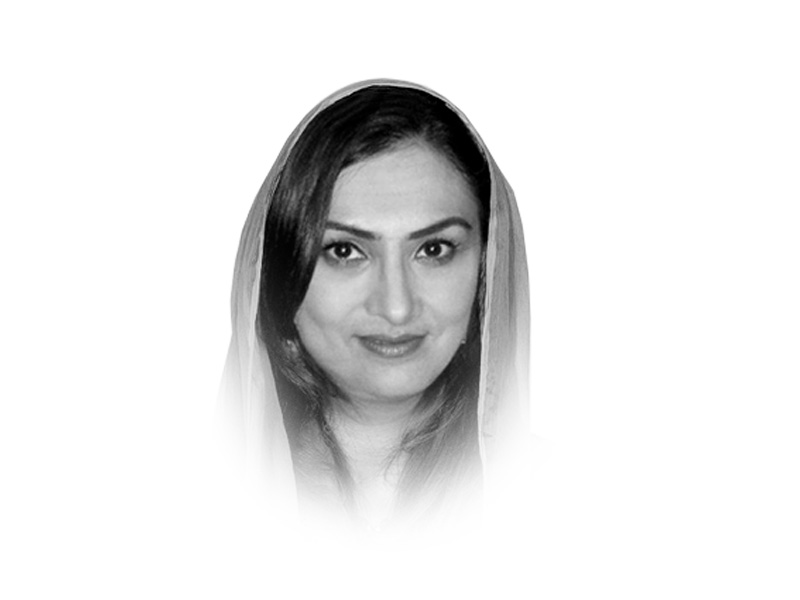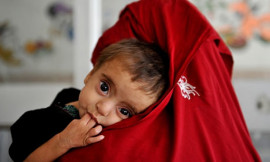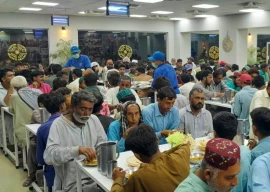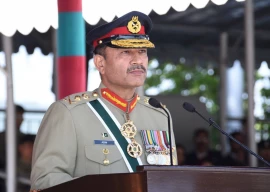
The BISP is aware of the importance of consultation to make the process more transparent, dynamic and vigorous. We know that with the involvement of multiple stakeholders, rather than conducting an exercise in isolation, the acceptability of the exercise increases and envisioned potential can be exploited to the maximum extent possible. Therefore, BISP invited various stakeholders for many consultative sessions on the re-survey, including representatives of provinces and regions, policy-makers, advisors, economists, poverty experts and development partners involved with BISP over the years. The idea was to come up with a design and plan for re-survey after mutual agreement on divisive issues. The process of consultation was very robust and effective, which allows the participants to raise concerns in the existing system and suggest solution to resolve the issues within the new system.

The NSER has been divided into two phases, i.e., pilot phase (Phase I) and National rollout. One of the major concerns of the stakeholders was that the survey is a time-bound exercise while the design does not have room to incorporate those who were excluded during survey for some reason. Therefore, the plan for BISP is to test a new approach — desk approach — in the pilot phase, which allows the population to get themselves registered with BISP through pre-established registration centres. In the pilot, BISP will compare desk approach with door-to-door approach, which was used in last survey, and conduct a cost-benefit analysis to determine value for money, address organisational efficiency and test the operational viability and sustainability of such exercise in future. Till now, more than 250,000 households have been registered in four districts, where registration centres have been established by BISP.
Under the previous survey design, the PSC is applied at household level and one household may have a single or multiple families in it. The relationship recorded in PSC is with the Head of the Household, while it is difficult to ascertain among the other members in the current system. It was, therefore, difficult to draw family trees within one household, which is a requirement of many programs using BISP data and, to some extent, of BISP as well. In the new PSC for NSER update, family trees are being recorded as well. Therefore, after the new data is available, BISP will also be able to clearly indicate different families within one household. This would not only enrich our database enormously but would also be instrumental in designing any complimentary intervention for graduation of families out of poverty.
For independent opinion on the Survey activities and to keep a check on the partner organisations, BISP has hired the services of Third Party Operations Review Firms. During the last survey, these firms were hired at a later stage which compromised the effectiveness of the exercise. This time around, a Third Party Operations Review Firm has been hired simultaneously with the Survey Firms. This enables BISP to keep a robust check on the activities of survey firms and make course corrections along the way. This would be instrumental in improving the quality and coverage of survey, with lesser inclusion and exclusions errors. In addition, during the last survey, BISP had a very thin rather negligible presence at field level. This time, an internal M&E plan has also been developed, using BISP field presence as an opportunity to ensure timely and transparent implementation of entire survey operational life cycle.
All the internationally recognised social safety nets have certain validation checks to check the efficacy of collected data. Once the data is collected from the field, it is validated through NADRA. Last time, this was limited to duplication check (duplicate CNICs within BISP database) and validation check (validity of CNIC from NADRA database); in addition, ages, gender and marital statuses were also checked. This time, BISP has included more filters for better data verification. BISP is currently in consultation with NADRA on the possibility of various filters, including use of utilities by a household, government service, bank accounts etc. In addition, the veracity of checks is being increased by looking at all other CNICs that are linked with the CNIC provided during survey (NADRA family tree information). Last time, this was only limited to CNICs provided during survey. Since BISP is a women centric programme, it has a strong gender dimension; however, in the last survey, gender dimension of poverty was not included. This time a new variable of ‘productivity’ is included, which caters for the correlation between the household’s socio-economic status and number of working-age male members in the household.
Another important feature of new and revised PSC is that a whole new section has been added to gather information about the infant mortality, micro-finance, migratory trends, and Access to Justice. This has been done to enhance the robustness of information collected, which could be used by various social and labour market interventions launched by various provincial and federal governments, from time to time. The information collected from ‘Access to Justice’ questions will help Law and Justice Commission of the Supreme Court in designing their reforms of judicial system of the country. Having such diverse information, about each and every household surveyed, would surely make NSER database as a true national asset, which would be of paramount value for informed policy making both at Federal as well as Provincial level.
According to known international researchers, after the completion of NSER update, Pakistan would probably be the only country in the world having such huge panel data, which will be a treasure for development researchers around the world. Panel data provides two datasets on same indicators over different time periods, which will enable the researchers to draw comparisons and do data analytics of all sort. This can be used by all agencies in the country, involved in social protection and poverty alleviation, for planning and designing social, health and education policies, strategies and programmes.
Published in The Express Tribune, December 9th, 2016.
Like Opinion & Editorial on Facebook, follow @ETOpEd on Twitter to receive all updates on all our daily pieces.


























1714024018-0/ModiLara-(1)1714024018-0-270x192.webp)









COMMENTS (3)
Comments are moderated and generally will be posted if they are on-topic and not abusive.
For more information, please see our Comments FAQ